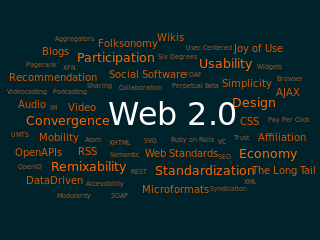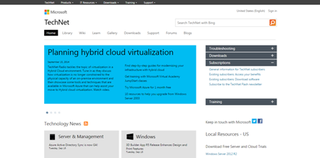Related Research Articles
Spamdexing is the deliberate manipulation of search engine indexes. It involves a number of methods, such as link building and repeating unrelated phrases, to manipulate the relevance or prominence of resources indexed in a manner inconsistent with the purpose of the indexing system.

Maxthon is a freeware web browser, created by JeffChen in Singapore. It is available for Windows, macOS, Linux, and as Maxthon Mobile for Android, iOS, and Windows Phone 8. Since version 6, Maxthon is based on Chromium.

Delicious was a social bookmarking web service for storing, sharing, and discovering web bookmarks. The site was founded by Joshua Schachter and Peter Gadjokov in 2003 and acquired by Yahoo! in 2005. By the end of 2008, the service claimed more than 5.3 million users and 180 million unique bookmarked URLs. Yahoo sold Delicious to AVOS Systems in April 2011, and the site relaunched in a "back to beta" state on September 27 that year. In May 2014, AVOS sold the site to Science Inc. In January 2016 Delicious Media, a new alliance, reported it had assumed control of the service.
Furl was a free social bookmarking website that allowed members to store searchable copies of webpages and share them with others. Every member received 5 gigabytes of storage space. The site was founded by Mike Giles in 2003 and purchased by LookSmart in September 2004. Diigo bought it from LookSmart in exchange for equity.
Social bookmarking is an online service which allows users to add, annotate, edit, and share bookmarks of web documents. Many online bookmark management services have launched since 1996; Delicious, founded in 2003, popularized the terms "social bookmarking" and "tagging". Tagging is a significant feature of social bookmarking systems, allowing users to organize their bookmarks and develop shared vocabularies known as folksonomies.
Mozilla Firefox has features that allow it to be distinguished from other web browsers, such as Chrome and Internet Explorer.
An autolink is a hyperlink added automatically to a hypermedia document, after it has been authored or published. Automatic hyperlinking describes the process or the software feature that produces autolinks. Segments of the hypermedia are identified through a process of pattern matching. For example, in hypertext, the software could recognise textual patterns for street addresses, phone numbers, ISBNs, or URLs.
CiteULike was a web service which allowed users to save and share citations to academic papers. Based on the principle of social bookmarking, the site worked to promote and to develop the sharing of scientific references amongst researchers. In the same way that it is possible to catalog web pages or photographs, scientists could share citation information using CiteULike. Richard Cameron developed CiteULike in November 2004 and in 2006 Oversity Ltd. was established to develop and support CiteULike. In February 2019, CiteULike announced that it would be ceasing operations as of March 30, 2019.

In information systems, a tag is a keyword or term assigned to a piece of information. This kind of metadata helps describe an item and allows it to be found again by browsing or searching. Tags are generally chosen informally and personally by the item's creator or by its viewer, depending on the system, although they may also be chosen from a controlled vocabulary.
In software development, version control is a class of systems responsible for managing changes to computer programs or other collections of information such that revisions have a logical and consistent organization. The following tables include general and technical information on notable version control and software configuration management (SCM) software. For SCM software not suitable for source code, see Comparison of open-source configuration management software.
In the context of the World Wide Web, a bookmark is a Uniform Resource Identifier (URI) that is stored for later retrieval in any of various storage formats. All modern web browsers include bookmark features. Bookmarks are called favorites or Internet shortcuts in Internet Explorer and Microsoft Edge, and by virtue of that browser's large market share, these terms have been synonymous with bookmark since the First Browser War. Bookmarks are normally accessed through a menu in the user's web browser, and folders are commonly used for organization. In addition to bookmarking methods within most browsers, many external applications offer bookmarks management.
This article details features of the Opera web browser.

Microsoft TechNet was a Microsoft web portal and web service for IT professionals. It included a library containing documentation and technical resources for Microsoft products, a learning center providing online training, discussion forums, an evaluation center for downloading trialware, blogs for Microsoft employees and a wiki.

Hatena Co., Ltd. is an internet services company in Japan. It operates various services including the most popular social bookmarking service in Japan, Hatena Bookmark. Hatena is the collective name of the company's services. On July 19, 2001, it was founded by Junya Kondo in Kyoto. The company moved its headquarters to Shibuya, Tokyo on April 10, 2004. The headquarters were moved back to Kyoto in April, 2008.
HCL Connections is a Web 2.0 enterprise social software application developed originally by IBM and acquired by HCL Technologies in July 2019. Connections is an enterprise-collaboration platform which aims to helps teams work more efficiently. Connections is part of HCL collaboration suite which also includes Notes / Domino, Sametime, Portal and Connections.

Twine was an online, social web service for information storage, authoring and discovery, located at twine.com, that existed from 2007 to 2010. It was created and run by Radar Networks. The service was announced on October 19, 2007 and made open to the public on October 21, 2008. On March 11, 2010, Radar Networks was acquired by Evri Inc. along with Twine.com. On May 14, 2010, twine.com was shut down, becoming a redirect to evri.com.

ApexKB, is a discontinued free and open-source script for collaborative search and knowledge management powered by a shared enterprise bookmarking engine that is a fork of KnowledgebasePublisher. It was publicly announced on 29 September 2008. A stable version of Jumper was publicly released under the GNU General Public License and made available on SourceForge on 26 March 2009.
Enterprise bookmarking is a method for Web 2.0 users to tag, organize, store, and search bookmarks of both web pages on the Internet and data resources stored in a distributed database or fileserver. This is done collectively and collaboratively in a process by which users add tag (metadata) and knowledge tags.
Folksonomy is a classification system in which end users apply public tags to online items, typically to make those items easier for themselves or others to find later. Over time, this can give rise to a classification system based on those tags and how often they are applied or searched for, in contrast to a taxonomic classification designed by the owners of the content and specified when it is published. This practice is also known as collaborative tagging, social classification, social indexing, and social tagging. Folksonomy was originally "the result of personal free tagging of information [...] for one's own retrieval", but online sharing and interaction expanded it into collaborative forms. Social tagging is the application of tags in an open online environment where the tags of other users are available to others. Collaborative tagging is tagging performed by a group of users. This type of folksonomy is commonly used in cooperative and collaborative projects such as research, content repositories, and social bookmarking.
Springpad was a free online application and web service that allowed its registered users to save, organize and share collected ideas and information. As users added content to their Springpad accounts, the application automatically identified and categorized it, then generated additional snippets based on the types of objects added—for example, listing price comparisons for products and showtimes for movies.
References
- ↑ Connotea Source Code Archived 2005-04-21 at the Wayback Machine
- ↑ "Association of Learned and Professional Society Publishers Award for Publishing Innovation". Archived from the original on 2005-11-24. Retrieved 2005-09-18.
- ↑ International Information Industry awards
- ↑ Nature.com blog:"Connotea to discontinue service"